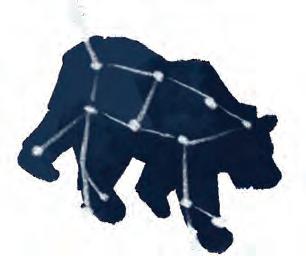
2 minute read
A Voice for Data Justice
When some scholars write about the emergence of big data, they see potential for new cures, insights and beneficial social policies. Safiya Noble, a MacArthur fellow and professor of gender studies, information studies and African American studies at UCLA, is cognizant of those amazing possibilities, but she also sees great harms already taking place.
“In the big data economy that we’re living in, there are thousands of data brokers buying and selling data about the public 24/7,” Noble says. “And a lot of that data can often be used in discriminatory ways.”
Advertisement
For an example, Noble points to the loan application process. It is illegal for financial institutions to ask questions about gender, race, ethnicity and similar identity markers.
“And yet, social network data can expose your race, your gender or any other protected class,” Noble says. “Using that data in combination with an offer for a financial product would be discriminatory, but so many of these kinds of products just come into the marketplace without any oversight.”
Recently, Noble has met with the Federal Trade Commission, Consumer Financial Protection Bureau and members of the U.S. Congress to discuss big data products that could be harmful to consumers. She has also been in dialogue with major tech firms about “How Search Engines
Reinforce Racism,” the subtitle of her blockbuster 2018 book Algorithms of Oppression
“There’s no question that search companies like Google have studied my work and tried to address the concerns revealed through that research,” Noble says. “Once the research is there, they have to contend with it, and many—but not all—do.”
At UCLA, Noble recently formed a new research group, the Center on Race and Digital Justice, where she aims to shine a light on the ways data can be used to discriminatory ends and, in her words, “to advocate for the abolition of systems that are very dangerous and racially unjust in our society.”
She is also involved in shaping the curriculum for UCLA undergraduates through the DataX initiative, which began in 2019 and where she took the reins in 2022. This highly interdisciplinary effort seeks to bring together everyone involved in data science at UCLA to share ideas, skills and commitment to justice and fairness in the use of data to address the most pressing issues facing society.
“If the DataX initiative is successful,” Noble says, “any student going into a field that is data-intensive will leave UCLA thinking critically about the potential for social harm to communities and to individuals.”
Bruin Connections
Data paints a bigger picture that reveals as much about the individual as it does society as a whole, from the inspiration behind this feature’s artwork to the discoveries made by doctoral candidate Jessica Cook. Read more about how she’s using technology to conduct groundbreaking literary research that will reveal a more accurate and inclusive portrait of our world at college.ucla.edu/magazine











